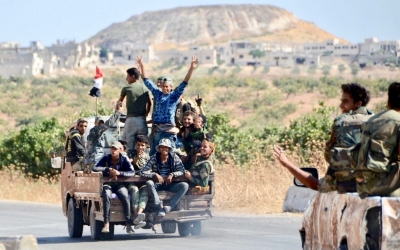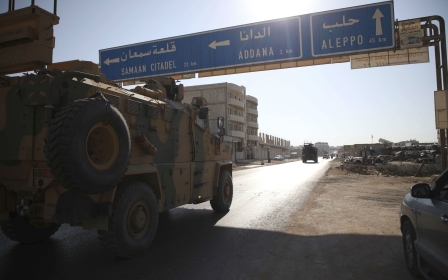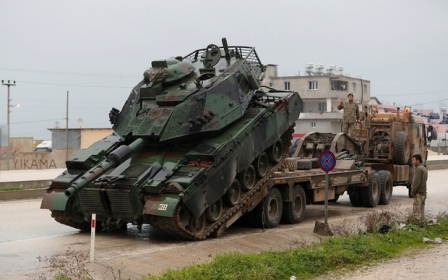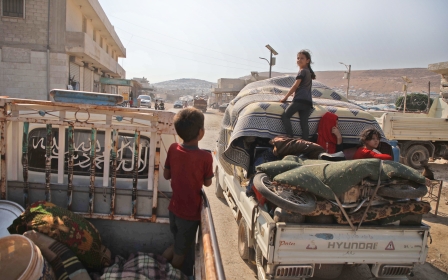At least a dozen killed in Syrian, Russian air strikes, as advance on Idlib continues
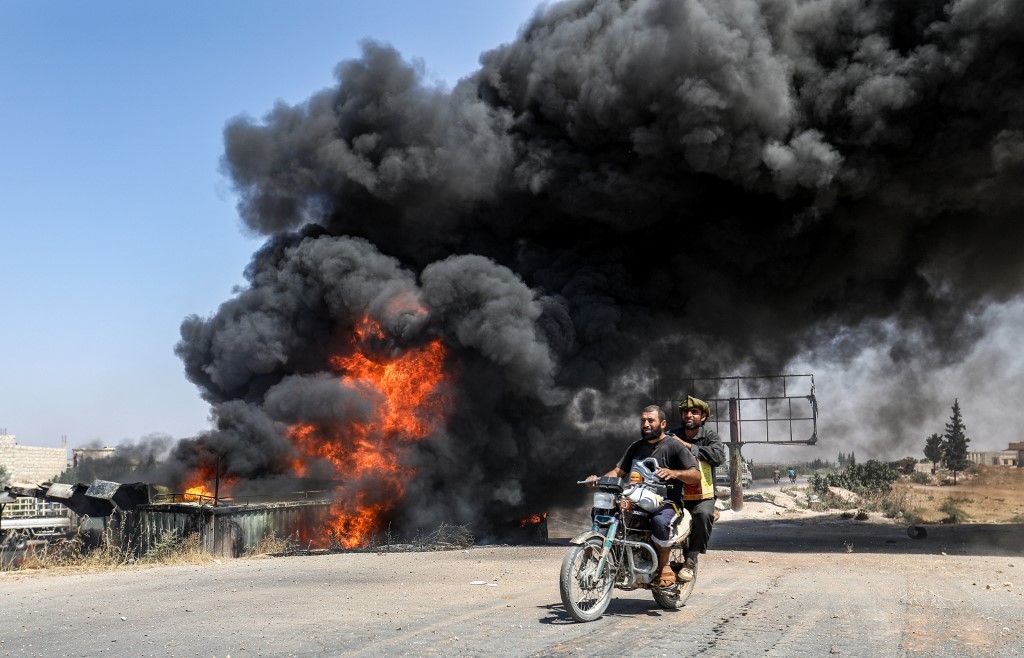
Air strikes by the Syrian government and allied Russian forces left at least a dozen civilians dead in northwest Syria, where heightened bombardment has claimed hundreds of lives since late April, an activist war monitor said on Monday.
The bombardment also wounded 27 other civilians in total, the UK-based Syrian Observatory for Human Rights said.
New MEE newsletter: Jerusalem Dispatch
Sign up to get the latest insights and analysis on Israel-Palestine, alongside Turkey Unpacked and other MEE newsletters
Syrian government forces have since last week been chipping away at the opposition-dominated region of Idlib on the Turkish border.
This comes despite a deal reached between rebel-backer Turkey and government ally Russia last year to set up a buffer zone in the region to protect its three million residents.
Since Wednesday, the Syrian military has seized the key town of Khan Sheikhoun from Hayat Tahrir al-Sham - an alliance led by Syria's former al-Qaeda affiliate - and allied rebels, overrunning the countryside to the south and encircling a Turkish observation post in northern Hama, AFP news agency reported.
A new push by Syrian government and Russian forces to take the area has seen heavy strikes and advances this week, particularly south of Idlib province and nearby Hama. The advancing forces have caused a new civilian exodus, Reuters reported.
After Khan Sheikhoun, Maaret al-Numan is the next town on a key highway running across Idlib province that analysts say is coveted by Damascus.
Total government control of that road would allow it to connect the capital with Aleppo, fully retaken from opposition fighters in late 2016.
Russian and Syrian government bombardment since late April has killed about 900 civilians, the Observatory says.
A further 400,000 have been forced to flee their homes, according to the United Nations.
Syria's war has killed more than 370,000 people since the brutal repression of anti-government protests in 2011.
Middle East Eye delivers independent and unrivalled coverage and analysis of the Middle East, North Africa and beyond. To learn more about republishing this content and the associated fees, please fill out this form. More about MEE can be found here.


